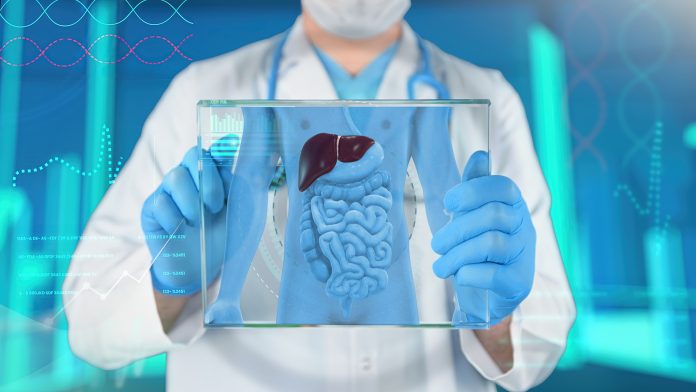
A new drug, discovered by the University of Barcelona, that can inhibit cell division and growth in enzymes could revolutionise liver cancer treatment.
The new drug has shown signs of anti-cancer activity with manageable side effects and could be ideal to treat patients who have not responded to previous liver cancer treatment.
“Primary liver cancer is the sixth most common cancer and among the leading causes of cancer-related deaths worldwide. Although new liver cancer treatment options are becoming available, the overall prognosis for advanced liver cancer remains poor. I wanted to find new treatments for this cancer,” said Dr Maria Reig, head of the Barcelona Clinic Liver Cancer Unit at Hospital Clinic Barcelona at Barcelona University.
The drug named NMS-01940153E has been designed to be a very strong and selective inhibitor of Monopolar Spindle 1 (MPS1), which is a kinase (a type of enzyme) that is overexpressed in liver cancer. MPS1 plays a crucial role in regulating cell division and growth, if this process is corrupted it can lead to cancer.
“Preclinical work demonstrated that NMS-01940153E was highly effective in preventing the proliferation of cancer cells, both on its own and in combination with other anti-cancer drugs. It seems more potent than other kinase inhibitors in liver cancer cells and so we are testing it, as a single agent, in a phase I clinical trial in liver cancer patients,” said Dr Reig.
Existing liver cancer treatment is not effective in all patients
In the trial, NMS-01940153E was administered to 12 liver cancer patients intravenously. The drug was given on days one, eight and 15, this was repeated every four weeks at increasing doses starting at 100mg per metre of body surface area per week.
All the patients had previously received liver cancer treatment, using up to three other anti-cancer drugs that had not worked. By August 2022, ten patients had discontinued treatment, seven of these stopped the treatment due to their disease progressing.
Out of the 11 patients who were able to be evaluated to see if the drug was effective, cancer shrank by at least 30% in two of them for 2.5 and 9.3 months. Both participants discontinued treatment after their cancer started to grow again. Two other patients had long-lasting stable cancer and are still receiving the treatment after 11 and 18 cycles.
“At the 100 mg/m2/w dose, one of six patients who could be evaluated had a partial response to the study drug. At the 135 mg/m2/w dose, one of the five had a partial response,” said Dr Reig.
“Since each patient had three prior failures with standard treatments, the responses to NMS-01940153E are a strong sign that this new mechanism might be valuable in liver cancer, especially for patients whose cancer has already failed to respond to standard options.”
Side effects of NMS-01940153E
When the doses were increased, two patients experienced neutropenia alongside either sepsis or a urinary tract infection at a dose of 135mg/m2/week. The side effects were considered serious enough to halt any more increase in dosage.
Other side effects that were observed were abnormally coloured urine, low platelet counts, anaemia, weakness, diarrhoea, and reaction at the site of the injection. There we no cases of drug-related death.
NMS-01940153E is currently being assessed in a second clinical trial in patients with liver cancer who are unable to be treated with surgery. It is hoped the trial will improve care for those who have not responded to existing liver cancer treatment.
“NMS-01940153E represents a new type of treatment, working in a very different way from the current options for treating liver cancer; therefore, it offers the potential to help patients in the future,” said Dr Reig.
“This is a small study, so the results will need to be shown in larger studies. The strength of the study is that the effect of NMS-01940153E appears to be realistic, due to the history of prior treatment failures of these patients and the early pattern of response we observed. Therefore, these results suggest that NMS-01940153E should continue to be studied in liver cancer and this is happening in the phase II trial, which started in August 2022 and is expected to continue to 2024 at centres in Spain and Italy.”

























